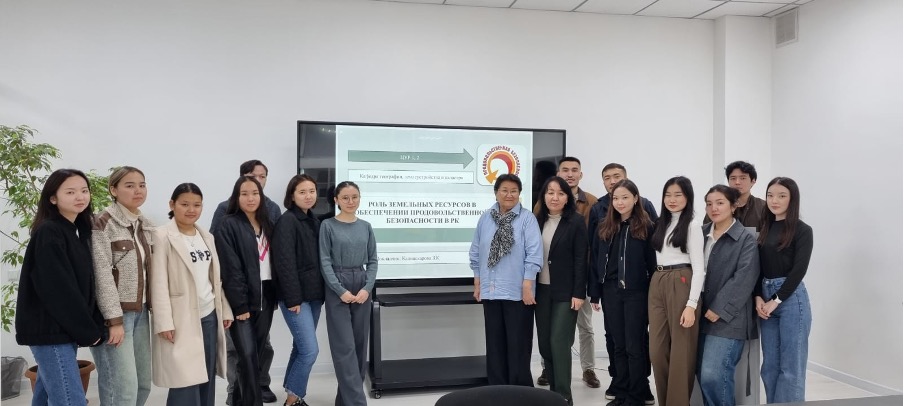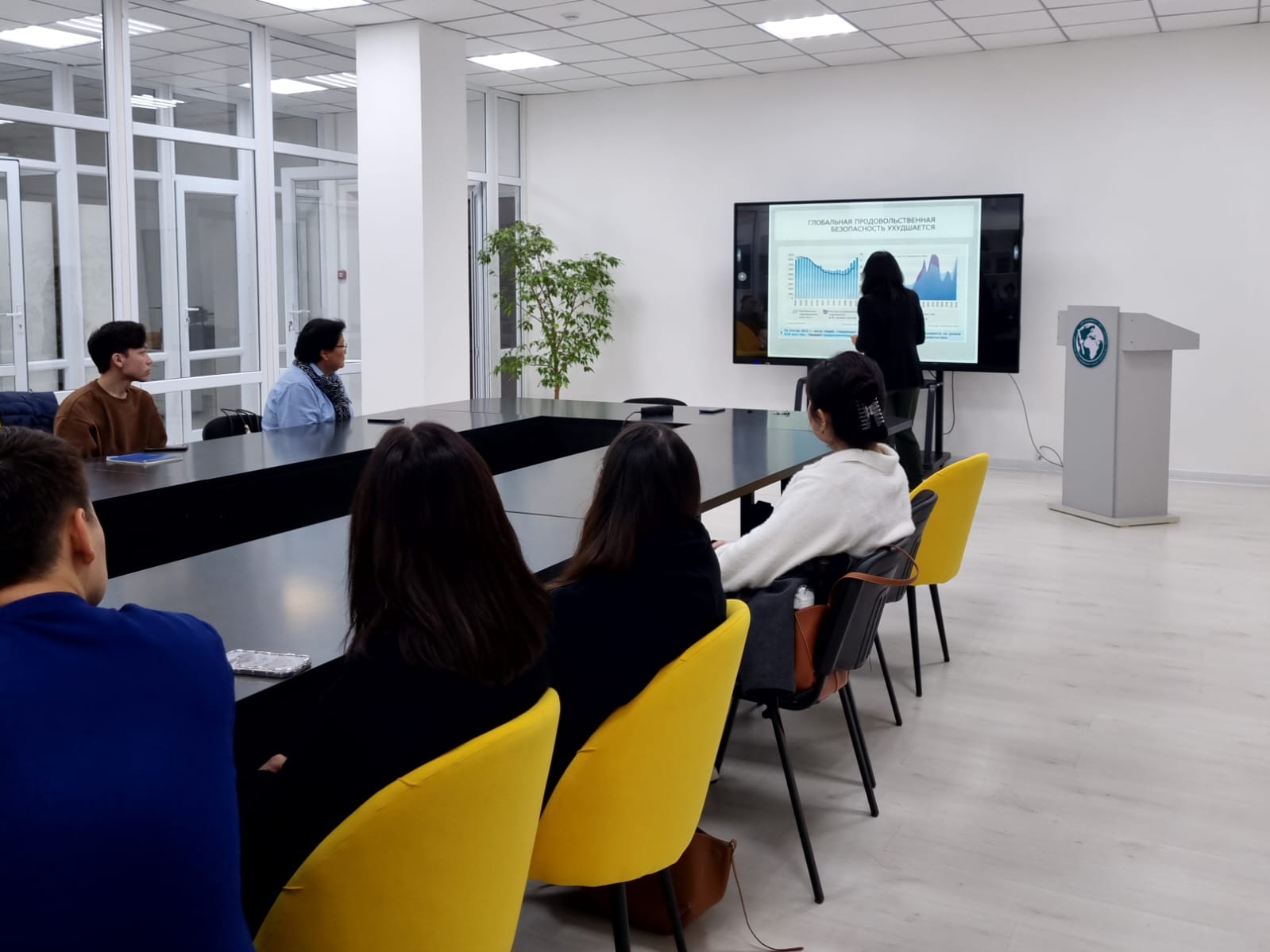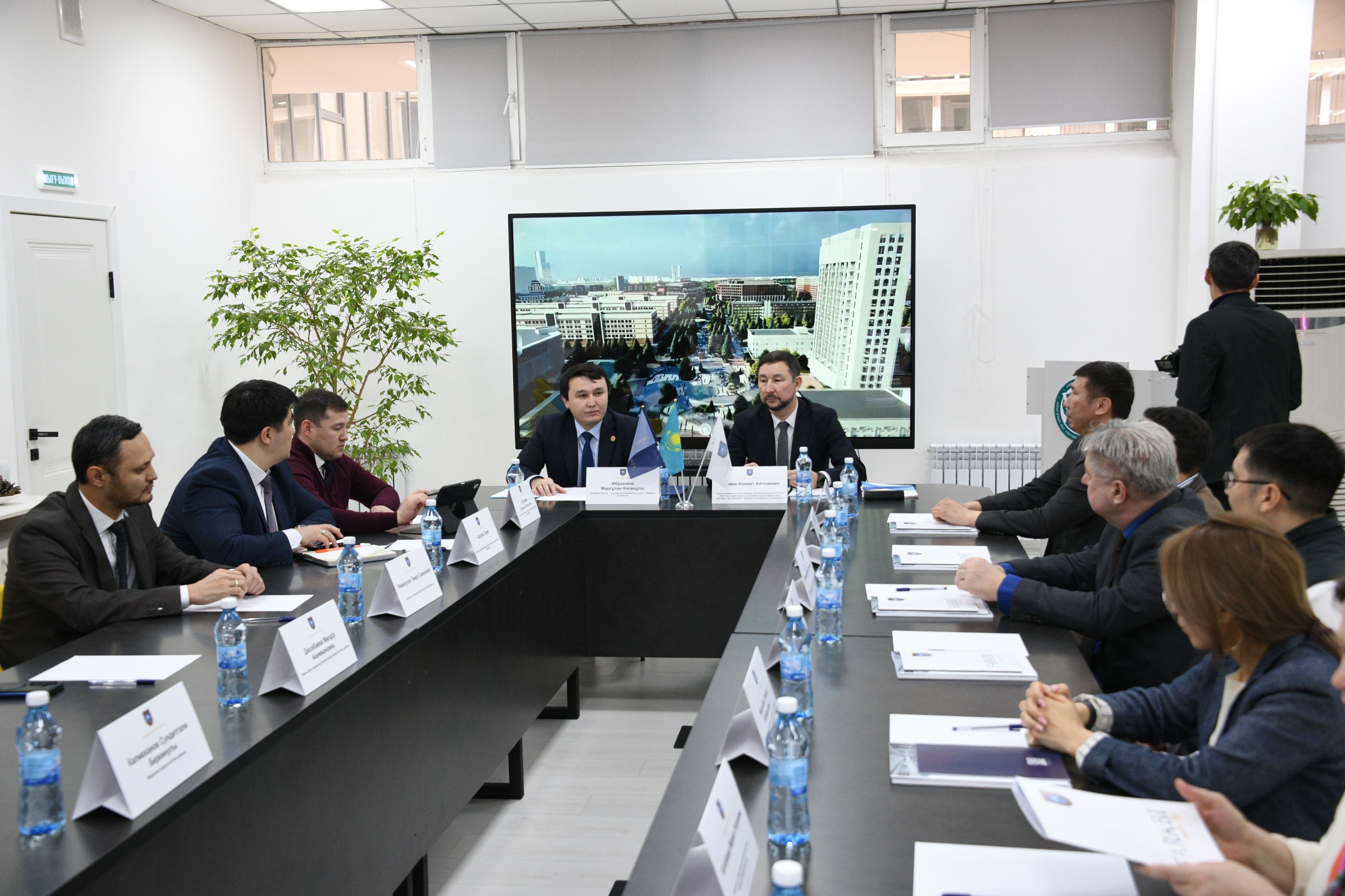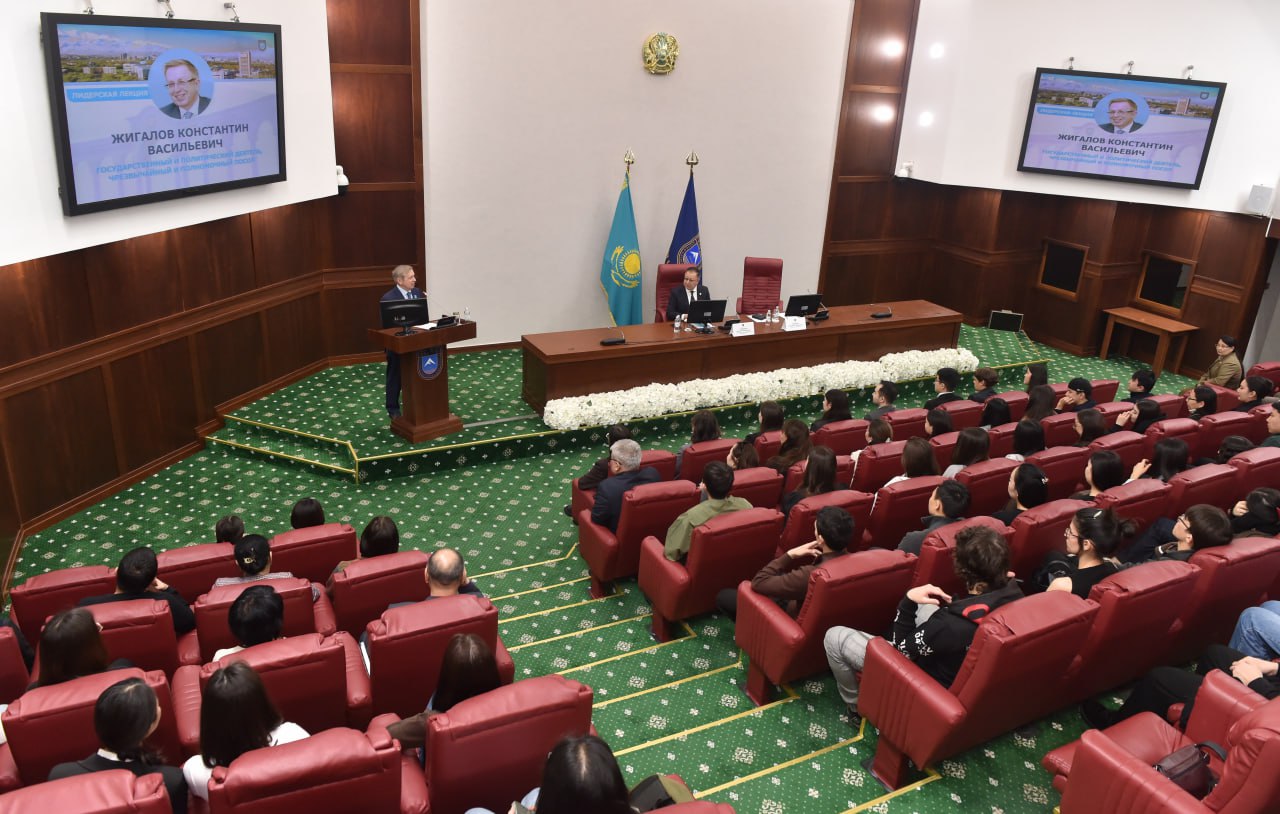‘The role of land resources in ensuring food security of the Republic of Kazakhstan’

On 15 October 2024 at the Faculty of Geography and Nature Management, Associate Professor of the Department of Geography, Land Management and Cadastre Kaliaskarova Z.K. held a discussion with the participation of Professor Abubakirova K.D. and students of specialities ‘Geography’ and ‘Land Management’ on the topic: ‘The role of land resources in ensuring food security of the Republic of Kazakhstan’. This event is timed within the framework of achieving Sustainable Development Goals (SDG 1, 2,13,15)

Food security of the Republic of Kazakhstan (RK) is one of the key components of the country's national security. In the context of global challenges related to climate change, population growth, limited natural resources and political instability in certain regions of the world, providing the population with quality and affordable food becomes a strategically important task for any state, including Kazakhstan.
Food security is defined as the ability of a country to provide the population with sufficient quantity of quality food products available to all segments of society.
Kazakhstan has a significant potential for ensuring food security due to its vast agricultural resources. More than 74 % of Kazakhstan's territory is suitable for agricultural use, of which a significant portion is pasture and arable land. Kazakhstan is one of the world's largest exporters of wheat and flour, which creates good prerequisites for achieving sustainable food security.
However, despite these advantages, the country's food system faces significant challenges. Firstly, Kazakhstan is still dependent on imports of certain types of food products, including meat, fruits and vegetables, and dairy products. This creates certain risks related to the volatility of international markets and possible political or economic sanctions. Dependence on imports also increases the country's vulnerability to changes in food prices on the world market, which may negatively affect the availability of products for the population.
Secondly, the country faces issues of logistics and uneven distribution of food between regions. The uneven distribution of infrastructure and logistical capacity between the regions of Kazakhstan results in limited access to food in certain areas and significantly higher food prices than in major cities. This creates social tension and increases the imbalance between the living standards of the urban and rural population.
Third, climate change and land degradation also affect agriculture and food security. It reduces agricultural yields and productivity, which may worsen food security in the long term. In addition, climate change intensifies these processes, increasing the risk of frequent droughts and extreme weather conditions.
To ensure sustainable food security, Kazakhstan needs to implement comprehensive reforms aimed at developing agriculture, improving infrastructure and making food more accessible to the population. Among the possible solutions, the following directions are highlighted:
1. Development of agriculture
2. Development of infrastructure and logistics
3. Strengthening food reserves
4. environmental sustainability and land protection
5. Social support and poverty alleviation
6. International co-operation
Stable food supply for all citizens is an important task that contributes not only to improving the quality of life of the population, but also to strengthening the national security of the country as a whole.
Other news



